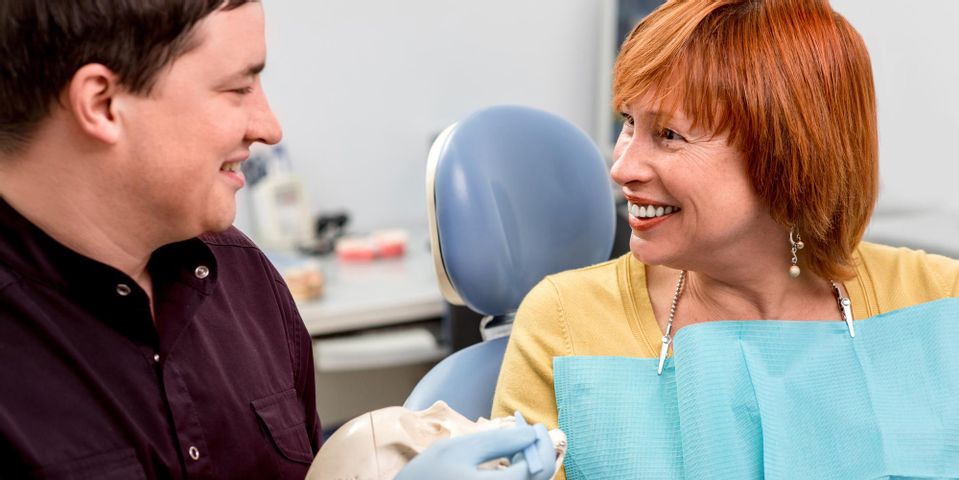
If you’ve been thinking about getting dentures to replace some missing teeth, you may wonder whether a full or partial set would be the best choice. The following guide will make it easier to know what suits you.
What Are Full Dentures?
This option makes sense if the majority of your teeth in both your upper and lower jaw are decayed due to cavities or gum disease. In that case, the remaining teeth would be extracted, and then your dentist may provide you with immediate or temporary dentures to use while your jaw heals.
After about two or three months, the dentist will fit you with a full set that’s perfectly suited for your mouth. The base, shaped like your gums, is made from acrylic and metal, while the artificial teeth are fashioned from plastic resin or porcelain.
What Are Partial Dentures?
 Similar in composition to the full alternative, partial dentures also have a metal frame that stays in place by attaching to your remaining teeth with a metal clasp. Think of them like removable dental bridges. There’s also an option for partial dentures that can be affixed to your gums rather than relying on neighboring teeth.
Similar in composition to the full alternative, partial dentures also have a metal frame that stays in place by attaching to your remaining teeth with a metal clasp. Think of them like removable dental bridges. There’s also an option for partial dentures that can be affixed to your gums rather than relying on neighboring teeth.
Which Should You Choose?
Both options are designed to realign your jaw to prevent jaw bone loss, allow you to chew properly, and maintain your digestive health. This helps you avoid a host of other medical problems, such as sleep apnea, weight gain, and persistent headaches.
Partial dentures tend to be less expensive and invasive than a full set. They can even be used if there’s only one healthy tooth remaining in your upper or lower jaw.
However, if most of your teeth have already decayed, it could make just as much sense to have the rest removed so you can be fitted with a full set. This is especially true if you’re concerned about infections in your remaining teeth arising down the line.
For more advice in choosing between full and partial dentures, as well as help preparing them, contact Eric J. Hartzell, DMD, in Greensboro, NC. He also provides the option of replacing your missing teeth with dental implants and dental bridges if you prefer. Having been a practicing dentist since 1994, he has the professional experience that you need to ensure that you make the best decision for yourself and receive the highest quality care that will benefit your overall health. To schedule an appointment, call his dental office at (336) 886-8776 or send a message online.
About the Business
(12 reviews)
Have a question? Ask the experts!
Send your question

